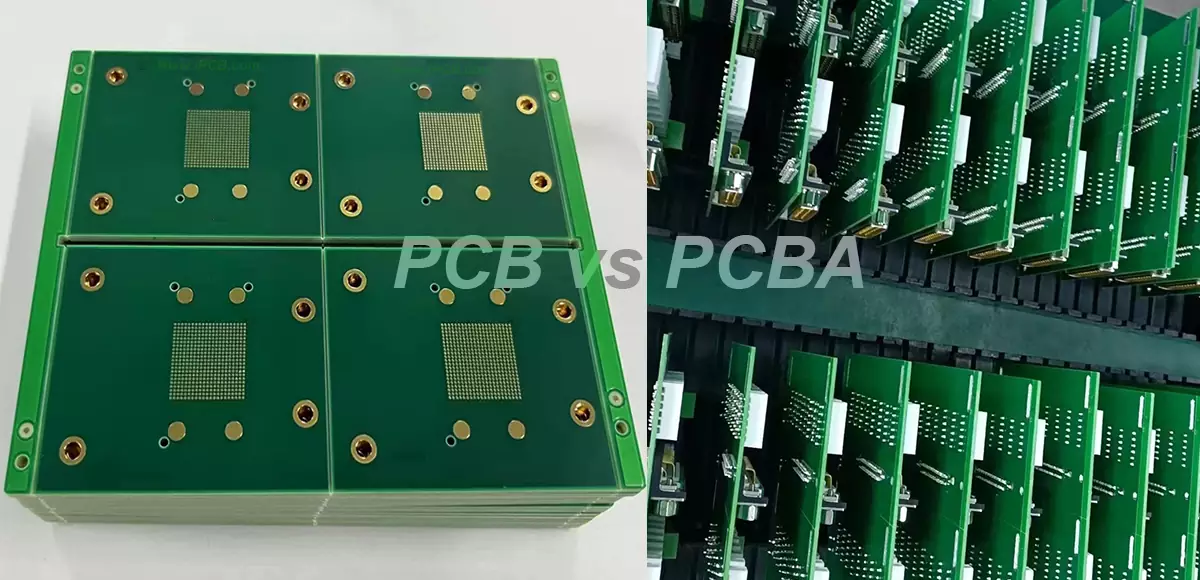In the field of electronic manufacturing, PCB (printed circuit board) and PCBA (printed circuit board assembly) are two very important links. They respectively represent the circuit foundation of electronic products and the functional units assembled.
So, in terms of technological content, which one needs better technology, PCB or PCBA?
PCB vs PCBA design
PCB design is the foundation of electronic products, which involves knowledge of circuit principles, layout and wiring, material selection, and other aspects. A good PCB design needs to meet various requirements such as electrical performance, reliability, and manufacturability. Therefore, PCB designers need to have a solid foundation in electronic knowledge, rich design experience, and good innovation ability.
PCBA design is the process of assembling electronic components according to circuit requirements based on PCB design. PCBA design needs to consider factors such as component selection, layout, heat dissipation, and signal integrity. Compared to PCB design, PCBA design focuses more on the overall system performance and stability, as well as the mutual influence between components. Therefore, PCBA designers need to have more comprehensive knowledge and higher technical proficiency.

PCB vs PCBA
PCB vs PCBA manufacturing
PCB manufacturing is the process of transferring designed circuit graphics onto a substrate through a specific process flow. It includes multiple processes such as substrate processing, pattern transfer, etching, solder mask, and surface treatment. PCB manufacturing has high requirements for equipment accuracy, process control, material performance, and other aspects. Therefore, PCB manufacturers need to have advanced production equipment, mature process technology, and strict quality control systems.
PCBA manufacturing is the process of soldering electronic components onto PCBs according to design requirements. It includes multiple processes such as SMT mounting, DIP inserts, wave soldering, and manual soldering. PCBA manufacturing also has high requirements for equipment accuracy, process control, welding quality, and other aspects. Compared to PCB manufacturing, PCBA manufacturing is more complex because it involves more components and more complex assembly processes. Therefore, PCBA manufacturers need to have higher production capacity and stricter quality control capabilities.
PCB vs PCBA testing
PCB testing mainly tests the electrical performance of circuit boards, including conductivity testing, voltage withstand testing, etc. Testing can ensure the quality and reliability of the circuit board. With the development of technology, PCB testing is constantly upgrading, and advanced technologies such as Automatic Optical Inspection (AOI) and X-ray detection have emerged, improving testing efficiency and accuracy.
PCBA testing is the testing of assembled circuit boards, including functional testing, performance testing, etc. PCBA testing not only tests the electrical performance of the circuit board, but also verifies its performance in actual working environments. Compared to PCB testing, PCBA testing is more complex and comprehensive as it involves the performance and stability of the entire system.
After our analysis, the technological content of PCBA is relatively higher than that of PCB. Although PCB plays an important role as the foundation of electronic products, the implementation of functions in actual electronic products often relies on the PCBA process. Therefore, for electronic manufacturing enterprises, mastering advanced PCBA technology is of great significance for enhancing product competitiveness and reducing production costs.
Of course, this does not mean that the importance of PCB technology is weakened. On the contrary, with the development of electronic products towards higher performance and smaller volume, the requirements for PCB design are also constantly increasing. An excellent electronic product requires both excellent PCB design and PCBA technology to achieve excellent performance and stability.